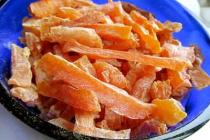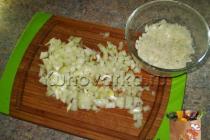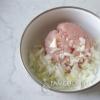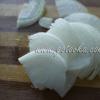Zolotova Vera Mikhailovna
Teacher primary grades
MBOU "Secondary School No. 53"
Thing: Russian language
Class: 3
Subject . The alternation of sounds in the suffixes of words, visible in writing. E and O are fluent vowels.
A place: learning new material
purpose : To acquaint students with the conditions for choosing vowels in noun suffixes –ek, –ik.
Tasks:
Educational:
Form an idea of how to write the suffixes -ek, - ik.
Repeat word-formation analysis.
Developmental: ra development of students' speech, enrichment of vocabulary; development of spelling vigilance, logical thinking.
Educational : education of attentiveness, accuracy, curiosity.
Lesson plan:
2 Vocabulary work... Repetition of the material studied. Lesson topic message.
3 Acquaintance with new material. Work on the topic of the lesson.
4 Physical education
5 Exercises to consolidate the material
6 Homework
7 Lesson summary
During the classes.
I Organizational moment
The eyes look and see.
The ears listen and hear.
First I think, and then I speak.
I remember that I'm not alone in the class
I know how to listen to the opinions of others.
II. Spelling and vocabulary work
Teacher. The first stage of our lesson is traditional. This is vocabulary and spelling work.
Why are we doing it?
We conduct it in order to write and speak correctly, not to make mistakes in vocabulary words.
Dictionary work.
Attention to the board, read the sentence.
Could you meet such a phenomenon in nature? (Not).
What is this proposal? (Comic).
Insert the missing letters into the words.
What words did not cause difficulties in your work? (on aspen, walnut)
What letter should you write in these words?
In which word did you find it difficult to insert a letter? (one day)
Why? (it is new, we haven’t met this word yet)
Where do you specify the correct spelling of this word? (In the dictionary "Write Correctly")
Open the dictionary and spell out the word "once", then write off the sentence by inserting letters.
.. once on .. blue grew .. six.
Put stress in words, underline the letter you want to remember.
2 ) Message of the topic of the lesson.
How do you understand the meaning of the word runaway?
Is this concept found in Russian?
When? (when we talk about fluent vowel)
How many fluent vowels are there in Russian? Name them. (O and E)
Why are they called runaways? (Alternating with zero sound). P. 125.
Where have we encountered fluent vowels? (At the root of the words).
What are we going to talk about today?
Guess if fluent vowels can be found in other parts of the word? Which ones?
Formulate the topic of the lesson. (Alternating sounds in word suffixes, E and O are fluent vowels).
If you find it difficult to answer this question, Anishit Yokopovna will tell us.
Open with. 129 and read her words.
III Working with new material.
Exercise 146, 147, p. 130 (work in pairs)
Teacher. Open the dictionary. Look at the legend in the margins on the left and tell me which dictionary will you work with? What letter will you open the dictionary to?
Open up, read the words on -eck. Choose words for the world of plants and mushrooms and nouns for baby pets.
What words of the first group did you mark? Read the words of the second group.
You will work in pairs. One of you will write one group of words in a column, and the neighbor will write another. Next write the word from the BASIS of which it is formed. Review the sample in the tutorial and get started.
Two are working at the blackboard.
Show how any two words are formed. Do not select the roots, only select their roots! As shown in the tutorial.
The second part of the assignment is being completed.
Prove, changing the form of the words, that all words ending in –ec have the spelling “fluent vowel in the suffix”.
What form will you use for the proof? (R.p. sing.h).
Read what form Misha used?
IV Fizminutka
V Work on the topic of the lesson.
Teacher.
Sometimes words with a fluent vowel are CONFUSED with other words where there is no such spelling.
Read the words on the chalkboard:lock (f / s) to costume (f / k)
Tell me orally, from the foundations of which words were these words formed? (castle, costume)
One of these words has the spelling "fluent vowel in the suffix", while the other does not.
How to find out? (It is necessary to change the form of the words: let it be the form of the R. of the singular).
Zamoch e k - deputy chk but
Kostyumch and k - suit chick but.
Where is the vowel sound "escaped"?
Where did he stay in place?
Which word of the two has the spelling "fluent vowel in the suffix"?
- Read the Rule of the Bat.
Show in writing how these words are formed:
Lock - lock /; lock + ek +… = lock
Suit - suit /; suit + chick +… = suit.
Were the same suffixes involved in the formation of these words? (different: -ek and -chik)
VI Exercises in order to consolidate the material studied.
Practice Exercise 149 (two words at the blackboard, the rest on their own)
Sand .. k - peso chk but; sand/; sand / + ek +… = sand.
Wagon .. k - wagon and ka; wagon / + chick +… = wagon.
Balconch .. k - balcony and ka; balcony / + chick +… = balcony.
Fartuch .. k - to apron chk but; apron/; apron / + ek +… = apron.
Dill .. k - dill and ka; dill / + chick +… = dill.
Practice Exercise 152 (yourself)
Try to spell the words correctly. What do you need to do for this?
There are three students working at the blackboard. (In a chain).
Let's make a rule - an algorithm that will help you write words correctly in the future.
I step. Change the shape of the word.
II step. Determine if the vowel "runs away".
Well no
Write E or O Write Y
Using the algorithm, fill in the table. Put a "+" sign in the appropriate column.
Mutual verification.
Who did not make a single mistake, put it!it is perfectly
Who made one or two mistakes, put a + signit's also good
Who made more than two mistakes, put yourself?it means there are still questions, not all
Understood, we still have to work.
Vii Lesson summary.
- Spell the words using the algorithm:
If, when changing the form of a noun word, the vowel runs away, then write ...
If the word does not contain the spelling "fluent vowel", then write ...
VIII Homework.
The best result of this lesson will be your error-free homework writing.
Practice Exercise 154
Spelling of noun suffixes includes a number of rules. We have already analyzed the spelling of H and HH, so the remaining rules can be roughly divided into two types of rules:
1) Spelling of consonants in noun suffixes;
2) Spelling of vowels in noun suffixes.
Spelling of consonants in noun suffixes.
1) Suffix -chik spelled in nouns whose stem ends in consonants g, h, s, d, t:
Counter, pilot, scout, storyteller.
Note... Consonants k, h, c, which the stem of the noun ends with when adding suffix -chik alternating with -t-:
Distribution - Dispenser, Intelligence - Scout.
2) Suffix -Schik is written in nouns whose stem ends in all other consonants:
Welder, ring worker, nuclear worker.
Spelling of vowels in noun suffixes.
1) Suffix -chik or suffix -check?
The suffix -chik is written in cases where the suffix for case declension remains unchanged:
Key - key - key; boy - boy - boy.
If the vowel drops out when declining in cases, then in the nominative case we write suffix -ec:
Lock - lock - lock.
Attention... There is no suffix -check in Russian!
2) Suffix -enk- and -onk-.
If the stem of a noun ends in a soft consonant or consonants w, w, then the suffix is written -enk-:
The soul is darling, the dawn is the dawn.
If the stem of a noun ends in solid consonants other than w, w, then the suffix is written -onk-:
The lip is a sponge, a fur coat is a little fur coat.
Words to remember. Goody, goodbye, goodbye.
3) Suffixes -ich- + -k- get nouns whose stem ends in -its- (in this case, there is an alternation of -ts / -ch-):
A bird is a bird, a button is a button.
The rest of the nouns get diminutive suffix -ech-:
Seed, Manechka, name.
Note... In Russian, there is no unstressed suffix -yachk-!
4) Suffixes -in- + -k- are written in nouns with a stem ending in -in-:
pea - pea; machine - machine.
Combination of suffixes -en- + -k- forms a diminutive form of nouns that end in -nya and -na (in which, in the plural form, genus. not written soft sign):
Arable land - arable land - arable land; pine - pine - pine.
5) Suffix -ets (o) is written in neuter nouns, the stress in which falls on the ending:
Letter
If the stress in such nouns falls on one of the syllables of the stem, then the suffix is written -its (e):
Noun suffixes
Suffixes -ik-, -chik- are written if the vowel is preserved in all forms during declension of nouns: crystal ik (crystal ik a), hut ik (hut ik a); if the vowel drops out when the word changes, then the suffix -ec is written: pea ek (pea to a), rain ek (rain to a), friend (friend to a), bell ek, bag ek, bag ek, knife ek, present nut, horn nut, bitch nut.
Note. At the root of nouns such as nut, horn, there is an alternation of x - w, k - h, c - h, therefore the suffix -ek, -ik, and not -chek - -chik (compare: finger - finger - ik) stands out in them.
The suffix -ets is written in masculine nouns (the vowel e in the suffix disappears during declension), and the suffix -its- is written in feminine nouns (the vowel is always preserved): owned ets (owner), capital ets (capital), frost ets, story ec, commander ec; book itz (book itz), handsome itz, owned it.
In neuter nouns, the suffix -etz- is written if the stress falls on the ending, and -ic- if the stress precedes the suffix: palt etz about, letter ets about, gun ets about; bld but ny itz e, good about vy itc e, cr e sl itc e, pl but it is e.
The suffix -ichk- is written in feminine nouns formed from stems on it: ladn ichk a (ladn its -a), bows ichk a (bows its -a), buttons ichk a (buttons itz-a), smart ichk a ( clever its). In other cases, the suffix -echk- is written: pawn echk a (pawn), sit echk o (sieve), morning echk o (morning); as well as in formations from words for me: time echk about, tribe echk about, step echk about, tem echk about; in proper names: Val echka, Zo echka, I echka, Kol echka, Fen echka, Yul echka (these words do not end with the stem).
1. The same rule can be applied to the complex suffix -nichk-: waffle nichk a (waffle itz-a), sugar nichk a (sugar nichk -a).
2. Spelling proper names with the suffix -ichk- such as Son ichk a, Fen ichk a in modern language abnormally.
3. In Russian, there is no unstressed suffix -yachk-.
The suffix -onk- is written in nouns whose root ends in a solid consonant: birch z - onk a, head v - onk a, de v - onk a, kos - onk a, Li z - onk a, li s - onk a , polo with - onk a; but: Mar f a - Mar f '- enk a. The suffix -enk- is written for nouns whose root ends in a soft consonant or in a hissing: Va l '- enk a, dear f - enk a, to h' - enk a, but h '- enk a, friend - enk a , Ca sh - enk a.
Exception: ba ink and, for ink a, pa ink a.
1. From the words mom, dad, forms are formed only with the suffix -enk-: mam yenk a, dad yenk a. Mom shapes but nka, dad but nka - vernacular, m but monka is dialectal.
2. The spellings of Anninka, Fox, Marthe, Polinka, etc., found in the works of classic writers, are abnormal, since there are no suffixes -ank-, -ynk-, -ink- in the modern language.
In diminutive forms formed from nouns on nya with the suffix -k-, b is written if it is in the genitive plural: ), melon (melon), kitchen (kitchen), alms (alms), nanny (nanny), desert (desert), apple tree (apple).
If the genitive case of the plural ь is not written, then it is not used before the suffix -к-: fable (fables), turret (towers), bell (bell), kupalenka (kupalen), pashenka (pashen), song (songs) , chapel (chapels).
The combination inc (suffixes -in- and -k-) is written in words that are formed from feminine nouns on in (a): beads inc a (beads in a), beads inc a (beads in a), peas inc a ( peas in a), pearl inc a (pearl in a), raisin inc a, almond inc a, missed inc a, ssad inc a; by analogy, the words snow inc a (here the suffix -ink-, since there is no word snowflake), throat inc a, push inc a are formed. In a few words, the suffix -enk- is written: bezh enk a, monk enk a, nez enk a, beggar enk a, french enk a, Circassian enk a.
The suffix -chik- is written for nouns whose stem ends in d, t, z, s, z: depositor, automatic operator, bartender, driver, lubricant, subscriber, deserter.
Note. The consonants k and h before the suffix -chik- alternate with t: mined chik (prey), kabat chik (tavern). The suffix -schik- is written for nouns whose stem ends in other consonants (except for d, t, s, s, z): atom - schik, gardero b - schik, trainer - schik, kamen - schik, background p - boxer, haltu r - boxer.
Note. Before the suffix -shchik- ь is written only after l: roofer-shchik, sawn shchik, absentee shchik, textiles shchik.
Nouns formed from adjective stems have suffixes:
Out-: white out, blue out, yellow out, curve out, new out;
-in-: fast in a, high in a, deep in a, old in a, gray in a, thick in a;
-from-: red from a, small from a, naked from a, motley from a, straight from a, blind from a;
-ost-: dilapidated spine, wildness, businesslike spine, homeliness spine, wretchedness, angularity; as well as from the basics of the participles: agitation, good breeding, isolation.
Formations from the bases of adjectives with the suffix -ness are also possible: future (future), universality, ardor, readiness, community, essence (being).
For nouns formed from the stems of verbs, suffixes are written:
-value-: begging, primacy (from begging, to excel);
-rel-: running is related (from running), pack is related, swear is related, knock is related, sense is related;
-stv- (-stv-): thief, witchcraft, witchcraft, matchmaker, bragging, buffoonery, apparition (obsolete from appearing);
-real-: cheating (from cheating), handicrafts, loafing about, fraudulent things, fastidiousness about; also from the bases of adjectives: surplus, power.
Note. It is recommended to remember the spelling of words such as brew, mash, formed from verbs using the suffixes -iv-, -ev-. Here are some of them: zhev o, circling o, hens o, fuel o.
3.2.5. Spelling the suffixes of nouns
When spelling the suffixes of nouns, several types of rules can be distinguished:
1) spelling of vowels in noun suffixes;
2) spelling of consonants in noun suffixes.
Since the spelling of vowels after sibilants and c in noun suffixes was considered in paragraph 1.12. Spelling of vowels after sibilants, 1.13. Spelling of vowels after C, in this paragraph this type of rules is not analyzed.
Spelling n and nn in noun suffixes formed from adjectives and participles, see p. 3.3.5. Spelling of suffixes of adjectives, 3.8.3. Spelling of participles.
1. Spelling of vowels in noun suffixes.
but) The suffix -ik is written if the vowel is preserved during declension;
IK key - IK key.
The suffix -ek is written if the vowel drops out during declension.
Lock - lock.
The suffix -chik is always written with a vowel and (there is no suffix -check in Russian!);
Bay → bay chick.
b) The suffix -onk- is written after hard consonants, except for w, w;
Fur coat → fur coat onk a.
suffix -enk- - after soft consonants and w, w.
Dawn → dawn enk a, soul → shower enk a.
Remember the spelling: ba and nka, for and nka, pa and nka;
in) In neuter nouns, the suffix -ets (o) is written if the stress falls on the ending;
the suffix -itz (e) is written if the stress falls on the stem;
In masculine nouns, the suffix -etc- is written if the vowel drops out during declension.
Gore ets - gor ts a.
d) The combination of suffixes -ich- + k- is written in nouns formed from nouns with the suffix -ic- (c alternates with ch);
Pugov ichk a → pugov ichk a.
In other cases, the diminutive suffix -echk- is written.
Im echk about, Man echk a.
There is no unstressed suffix -achk- in Russian (!);
e) a combination of suffixes -in- + k- is written in nouns formed from feminine nouns with the suffix -in-;
Peas in a → peas in a.
The combination of suffixes -en- + k- is written in diminutive nouns formed from nouns in -nya and -na, which in plural no genitive soft sign is written.
Sos on - pines → pines; fable - bass → bass.
The suffix -enk- is written in some feminine nouns.
2. Spelling of consonants in noun suffixes.
but) the suffix -chik is written in words whose stem ends in d, t, z, s, z;
Scribe, counting, storytelling.
the suffix -schik is written in words whose stem ends in other consonants;
Drinker, atom.
b) before the suffix -chik k, c, h are replaced by t.
Kaba k → kaba t chik; dispenser → dispenser.
Exercise to the topic “3.2.5. Spelling of suffixes of nouns "
Read also other topics of section 3 “Morphology. Spelling":
Spelling of noun suffixes.
Spelling of noun suffixes includes a number of rules. We have already analyzed the spelling of H and HH, so the remaining rules can be roughly divided into two types of rules:
1) Spelling of consonants in noun suffixes;
2) Spelling of vowels in noun suffixes.
Spelling of consonants in noun suffixes.
1) Suffix -chik spelled in nouns whose stem ends in consonants g, h, s, d, t:
Counter, pilot, scout, storyteller.
Note... Consonants k, h, c, which the stem of the noun ends with when adding suffix -chik alternating on -t-:
Distribution - Dispenser, Intelligence - Scout.
2) Suffix -Speaker is written in nouns whose stem ends in all other consonants:
Welder, ring worker, nuclear worker.
Spelling of vowels in noun suffixes.
1) Suffix –chik or suffix –chek?
The suffix -chik is written in cases where the suffix remains unchanged in case of declension:
Key - key - key; boy - boy - boy.
If the vowel drops out when declining in cases, then in the nominative case we write suffix –ec:
Lock - lock - lock.
Attention... There is no suffix -check in Russian!
2) Suffix -enk- and -onk-.
If the stem of a noun ends in a soft consonant or consonants w, w, then the suffix is written -Enk-:
The soul is darling, the dawn is the dawn.
If the stem of a noun ends in solid consonants other than w, w, then the suffix is written -Onk-:
The lip is a sponge, a fur coat is a little fur coat.
Words to remember. Goody, goodbye, goodbye.
3) Suffixes -ich- + -k- get nouns whose stem ends in –Its- (in this case, there is an alternation of –ts / -ch-):
A bird is a bird, a button is a button.
The rest of the nouns get diminutive suffix -echk-:
Seed, Manechka, name.
Note... There is no unstressed suffix -yachk- in Russian!
4) Suffixes –in- + -k- are written in nouns with a stem ending in –In-:
pea - pea; machine - machine.
Combination of suffixes -en- + -k- forms a diminutive form of nouns that end in –Nya and –na (in which, in the plural form, genus. not written soft sign):
Arable land - arable land - arable land; pine - pine - pine.
5) Suffix -ets (o) is written in neuter nouns, the stress in which falls on the ending:
If the stress in such nouns falls on one of the syllables of the stem, then the suffix is written –Its (e):
Spelling of noun suffixes
This video tutorial is available by subscription
Do you already have a subscription? To come in

In this lesson we will look at the spelling of noun suffixes. Suffixes, the spelling of which is governed by certain rules, include suffixes -ec- and - uk-, -chick- and - box-, -OK- and -ec-, -onk- and -enk-, -etc- and - its-. Let's consider the rules for writing these suffixes and learn about the words-exceptions.
Spelling of most noun suffixes
Most noun suffixes are always spelled the same (no change in different words). An example of such suffixes:
yellowoh, husha, durable, emptyah, runningi boltI
However, in the Russian language there are suffixes, the spelling of which obeys certain rules.
Spelling suffixes -ek- / -ik- (-chik-)
If, when declining a word, a vowel drops out of the suffix, then this is a suffix -ec-... And if, when declining a noun, the vowel does not drop out, but remains, then this is a suffix -ik- or -chick-.
For example: key – keybut
barn- barnbut
sheet- sheetbut
soak- soakbut
Spelling suffixes - chick- / -schik-
Suffix -chick- spelled for nouns with stems ending in d, t, h, s, w . For example, contribution, automatic, grease, crossing, spacing.
Suffix -shchik- is written in nouns whose stem does not end with: d, t, h, s, w. For example, lantern, stone, drum, trainers.
Remember these consonants will help the sentence: “ Live here! "... The words in this sentence consist of the consonants we need.
Spelling suffixes - ok-, -ek-, -onk-, -enk-, -onok-
In noun suffixes -ok-, -ek-, -onk-, -enk-, -onok- after hissing and c under stress is written about, according to the pronunciation. In an unstressed position in these suffixes, after sibilants, it will be written e.
For example: bell(the suffix is in an unstressed position, so we write e); hook(the suffix is under stress, so we write about), peas, friend, dogah, daughterbut.
Spelling suffixes - ets- / -its-
Spelling suffixes -ts- / -its- depends on the gender of the noun in which this suffix is written.
Suffix -etc- spelled in masculine nouns, eg: handsome, brother, frost.
Suffix -its- spelled in feminine nouns, eg: handsomea, broomstickbut.
When declining suffix -etc- loses vowel e, eg: handsomeah, brotherbut.
And in the suffix -its- vowel declension and is saved, for example: no handsomes, no broomss.
Neuter nouns have a choice of suffix -ts- / -its- depends on the stress.
If the stress falls on the ending, then the suffix should be written in the neuter gender -etc- , eg: letter.
If the stress precedes the suffix, then the suffix must be written -its- , eg: crsle.
Spelling suffixes -onk- / -enk- standing not after the hissing
Suffixes -onk- / -enk- not always used after sibilants.
Suffix-Onk- spelled in nouns after hard consonants, eg: birchah, lizah, foxbut.
Suffix-enk- written only after soft consonants or after sibilants, eg: Shaftah, cloudsa, Zobut.
Exceptions to this rule: pera, paa, band.
From words mother, father forms with only the suffix are formed -enk-: mommy, daddy. Forms daddy and mother are vernacular, which means that abnormal.
Ann type spellings inky ah, liz ank a, Martha inky a, stripes ynk a, found in works of fiction, are abnormal, since the suffixes -ank-, -ynk-, -ink- in modern Russian, no.
Spelling of vowels in noun suffixes formed from verbs
After hissing under stress in the suffixes of nouns formed from verbs, you need to write a vowel e . For example: overnight, rooting.
Homework
1) Insert the missing letters.
The school prepared thin sections ... iks, a set. ikov and binding ... ikov.
Lubrication. ik oiled the wheels of the car.
Lantern ... ik lit the old lanterns.
Carriage ... ik transports people.
Kamen. ik, glass. uk and plumbing ... uk renovated the house.
Carving ... ik on wood he worked with redwood ... ik, granite ... ik and veneers. ik.
2) When is -ek- and when -ik- (-chik-) written in noun suffixes?
3) Insert the missing letters.
Soak ... to, letter ... tso, straw ... nka, monk ... nka, stripes ... nka, good ... nky, puddle ... tsa, owned ... tsa, load ... k, raznosch ... k, help ... k, for ... nka, structure ... tse, dress ... tse, fox ... nka, topl ... in, heat ... in, lecturer ... k, story ... ts, friend ... k, present ... k, bag ... k, hut ... k, sundress ... k, st ... chka ( street), smart ... chka, sem ... chko, time ... chko, bab ... nka, Liz ... nka, Sash ... nka, Zo ... nka, sun. shko, lane ... shko, sister-in-law ... tsa, poor health ... chko, throat ... nka, fathead ... k, tone ... nky, weaver ... stst, selfish ... c.
- Russian language. Grade 6: Baranov M.T. et al. M .: Education, 2008.
- Russian language. Theory. 5-9 grades: V.V. Babaytseva, L. D. Chesnokov. M .: Bustard, 2008.
- Russian language. 6th grade: ed. M.M. Razumovskaya, P.A. Lecant. M .: Bustard, 2010.
Word with the suffix "chik": spelling rules and examples
What words with the suffix -chik-, -shchik- do you know? Almost everyone can answer this question. Although there are people who are confused in the formulation of these morphemes. In this regard, we decided to devote the presented article to this particular topic. 
General information
Nouns with the suffix -chik- are often used in writing with such a morpheme as -shchik-. It should be noted that this is a gross mistake. After all, there is a strict rule in the Russian language, which directly indicates in which case the letter "h" should be written, and in which - "u".
Suffix features
How should one write and say: "scribe" or "scribe"? Not everyone knows the correct answer to this question. However, experts say that such a lexical unit has the suffix -chick-. Therefore, it is required to write “scribe” correctly. Although during pronunciation it is necessary to use only the first option.
Basic rule
As you can see, the suffix -chik- as well as the suffix -chik- can quite easily raise a lot of doubts about their spelling in the text. That is why experts recommend remembering the rule of the Russian language that explains the choice of a certain morpheme. For those who do not know it, we will introduce it right now.
If the stem of nouns ends in such consonants as "t", "zh", "d", "s" and "z", then only the suffix -chik- is required after them. In order to make this rule more understandable, here are some illustrative examples:
- translator;
- pilot;
- plumber;
- raznoschik;
- carrier;
- the narrator;
- gazetchik;

- driver;
- vOZchik;
- rewriter;
- cab;
- defector;
- carrier;
- machine gun;
- buffet;
- transfer;
- scout;
- cutter;
- oiler;
- helicopter;
- customer;
- bookbinder;
- tray;
- loader;
- hauler;
- TRANSMITTER, etc.
- distribution + suffix -chik- will be "distributor";
- tavern + suffix -chik- will be "tavern";
- prey + suffix -chik- will be “prey” and so on.
- DISTRIBUTION + suffix –chik- will be “distributor”;
- kabaK + suffix -chik- will be "kabaTchik";
- prey + suffix –chik- will be “harvester” and so on.

- instigator;
- debater;
- compositor;
- payer;
- reinsurer;
- concrete worker;
- deceiver;

- spinner;
- welder;
- drummer;
- overseer;
- tenant;
- sawyer;
- porter;
- rejectionist;
- mason;
- collector;
- trailer hitch;
- packer;
- polisher;
- herder;
- planer;
- lamplighter and so on.
- Title insurance. Protection of the buyer's property rights from the claims of third parties that arose before and survived after the acquisition of real estate The buyer of real estate should know: no matter how carefully the realtor, notary or registrar checks the legal purity [...]
- Employment of teenagers: when, how, how much and with whom can a child work in the summer? Contents of the article: Working child. In the twenty-first century, very few people will be surprised by this. European and Western countries have long been accustomed to child labor. In Germany, thirteen-year-olds [...]
- The process of delegation of authority What made it possible for not all, but many managers, to get their positions? First of all, because they did their job as ordinary employees better than others, they understood it much deeper than their colleagues. But the leader is not only [...]
- Taxes in Sweden and Business Development Prospects Before traveling to Sweden as a business expat, it is useful to learn more about the country's tax system. Taxes in Sweden are a complex and, as our compatriots would say, a tricky system. Some she [...]
- LAW of the Krasnoyarsk Territory On justices of the peace in the Krasnoyarsk Territory This Law in accordance with the Constitution Russian Federation, Federal Constitutional Law "On the Judicial System of the Russian Federation", Federal Laws "On the Status of Judges in the Russian Federation", [...]
As you can see, most of the words presented represent certain professions. With the suffix -chik-, such lexical units are also used that form the names of persons according to their belonging to a particular place of residence and nationality.
It is important to remember
Now you know what words with the suffix -chik- exist in Russian (examples of words were presented above). However, for the correct spelling of the mentioned lexical units, one should know not only the above-described rule. After all, a fairly large number of people make mistakes such as:
It should be specially noted that this is an incorrect word formation. However, on this score, there is a separate rule in the Russian language, which reads as follows: before the suffix -chik- letters such as "ts", "k" and "h" are replaced by the letter "t". Let's give an illustrative example:
In what cases is the suffix -schik- used?
Now you know when you should write a word with the suffix -chik-. However, in the Russian language, such lexical units are often found in which the morpheme -shchik- is used. As in the previous case, such a suffix can be placed in nouns that form the names of males who have a particular profession, who are engaged in a particular occupation, and also belong to any nationality or place of residence.
Also, the morpheme -schik- is written if the base of the noun ends with other consonants other than those presented above ("t", "g", "d", "s" and "z"). Let's give an illustrative example:
Foreign words
As mentioned above, a word with the suffix -chik- is written if the base of the noun ends in the following letters: "t", "g", "d", "s" and "z". Then the question arises as to why in some lexical units the morpheme -shchik- is used, even if its base has the letter "t" at the end. It should be specially noted that these are not exception words, but only foreign language forms.
Thus, some lexical units that have passed into Russian from a foreign language can be formed using the -schik- suffix, even if the letter "t" is at the end of the noun. But this is only if the foreign language word ends in 2 consonants. Let's give an illustrative example:
Frunzensky (Minsk) District Department of the State Forensic Expertise Committee of the Republic of Belarus Frunzensky (Minsk) District Department of the State Forensic Expertise Committee of the Republic of Belarus Phone: +375 17 2087505, +375 17 2130826 Address: Minsk, st. […]
In Russian, the suffix chik / shchik has a quite definite meaning: with its help, the names of persons by gender from occupations are formed. These can be names of professions (for example, Cutter, storekeeper, lamplighter, cabman, busman, loader, developer, translator), and other words indicating people who are characterized by certain actions ( smoker, payer, bather, diver).
The internal form of such nouns is simple and understandable: most often the suffix -schik or -chik, indicating a person, is attached to a verb stem denoting the same action characteristic of a given person:
- dancer - one who dances;
- payer - the one who is obliged to pay;
- lubricator - one who lubricates;
- swordsman - one who fences;
- subscriber - a person who subscribes to a newspaper or magazine;
- binder - binds books.
Sometimes such words can be formed from nouns, and in rare cases - even from phrases:
- lamplighter - one who watches the lanterns;
- clerk - works in an office;
- interest-holder - gives out money at interest;
- counterfeiter - makes counterfeit coins.
In some cases, nouns with the chik / shik suffix can denote not only people, but also mechanisms that perform a particular function. For example, “paver” can refer to both the person paving the asphalt and the technician performing the task. The same is with the word "counter" - in modern speech this word most often refers to devices or programs that count something automatically, but in some cases it can also be the name of a profession. In this case, the exact meaning of a word can only be determined by context.
Rules for writing -chik and -schik in nouns with examples
According to the rules of the Russian language, the suffix -chik in words denoting people by occupation is written only in cases where the stem ends in consonants d, t, h, s, f... For example: abuser, earner, storyteller, peddler, defector.
After all other consonants, write the suffix - schik. For example: moneylender, drummer, gravedigger, bricklayer, batman... Speaking about the rules for writing words with this suffix, you must definitely pay attention to the following point: the consonant u is soft, and the consonants in front of it are also softened. However, according to the rules of the Russian language, a soft sign in front of -schik will be placed only after the consonant л (for example - shareholder, taxpayer, fan). In all other cases, the soft sign will be considered an error.
The rule " after all consonants except for d, t, h, s, z food suffix -schik»Also applies to words whose stem ends in th (for example, washer, binder, grocer). In this case, the final sound is iot, which refers to consonants. And we must not forget about it.
However, there are also a few exceptions to this rule... For example, in the words astphalt or maintenance worker to write correctly - the man. This can happen if three conditions are simultaneously met:
- the root of the word is borrowed from another language;
- the suffix is preceded by at least two consonants in a row;
- in this case, the base ends with so-called.
How to quickly memorize the spelling rule -chik -chik
In order not to be mistaken in the spelling of these suffixes, it is necessary to know by heart the list of consonants, after which -chik is written. And the "classic of the genre" in such cases is the use of mnemonic phrases, which are much easier to remember than to memorize a combination of unrelated consonants.
To memorize the combination " d, t, h, s, f"You can use the mnemonic" children behind soot"- all the" necessary "consonants are present in it (only iot is" superfluous ", which is easy to discard), the phrase became widespread thanks to the book of the Soviet children's writer Vsevolod Nestayko" Extraordinary Adventures Robinson Cornuso ". According to the plot, this phrase was invented by the main characters of the book - two schoolchildren who suffered for a long time over a Russian language textbook, trying to memorize a list of consonants. And the "stupid", meaningless phrase was remembered instantly.
Thus, the rule "folded" into a mnemophrase will sound like this: children for soot - chick, the rest - chick».

Examples of sentences with nouns na-chik and -schik
There are many examples of sentences illustrating the rules for using words with such suffixes.
For example, here are 10 variants of sentences with words in -chik denoting profession or occupation
- Journalists working in print periodicals are sometimes called newspapermen.
- A good wood carver can create real works of art.
- A fiction translator should pay attention to the stylistic features of the original.
- The customer may refuse to accept the work if it is performed poorly.
- Software developers are in demand in the labor market.
- A cab driver in the old days is the same as a taxi driver today.
- To become a pilot, you need to be in good health.
- To transport the piano to new apartment had to hire a team of movers.
- Both the plaintiff and the defendant were present at the hearing.
- The scout was able to detect an enemy scout.
Examples of sentences with nouns ending in –Server:
- Posting ads often spoil the entrance doors.
- The actor played the role of a gravedigger in Shakespeare's famous tragedy "Hamlet".
- Grocers and greengrocers are often mentioned in classical literature.
- The watchmaker promised to repair the alarm clock in two days.
- A gimmick is one who never strives to do his job well.
- Football fans from many countries came to the World Cup.
- An excellent sense of rhythm is a must for a drummer.
- Glass washing is a dangerous profession when it comes to cleaning skyscraper windows.
- Each pioneer squad had its own buglers and drummers.
- The mass media wrote a lot about the problems of defrauded real estate investors.
Spelling of vowels in suffixes: how to correctly, -chik or -check
In nouns denoting persons by occupation in suffixes -Chick and –shchik always spelled the vowel and. However, other nouns can also end in –chik (or –chek). For example, boy, bell, cucumber or stalks.
In such cases, we are already talking about the suffixes of subjective assessment - most often diminutive, and in some cases giving the word a connotation of disdain (for example, "a bad worker from him"). In this case, the morphemic composition of the word will be different - the suffix -ec or -ik is highlighted in the word, and the preceding consonant h can be part of the root (for example, in the word kalachik) or a separate suffix (bell).
The rule to be followed in this case is quite simple.
If the vowel in the suffix is preserved during declension, you should write –ik... For example:
- bell - bell;
- corolla - corolla;
- casket - casket;
- little finger - little finger.
If the vowel is fluent, the suffix must be written through e:
- leaflet - leaflet;
- bell - bell;
- robber - robber.

Rules for writing suffixes -chik, -schik, -ek, -ik briefly
In order to quickly figure out how to write chik / chik / check, you can use a simple algorithm.
- Determine the meaning of the suffix... Does he denote a person, or does he introduce a diminutive or dismissive meaning into the word?
- If the word denotes a person by occupation, look at the final letter of the basis... If it is d, t, s, s, z and the word is not among the exceptions, we write -chik. In all other cases - a box.
- If we are talking about the subjective evaluation suffix, we put the word in the genitive case... If the vowel is preserved in the suffix, write the word through "and". If it turns out to be fluent - through "e".
Objectives:
a) belonging to a profession
b) character traits
- You have coped with the first task.
- Can these suffixes be distinguished phonetically?
/ After what letters is it written? /
And here is a magic phrase for you a gift from our guest: a magic phrase
- Why, tell me, is it magical?
- It is after these consonants that the suffix is written chick!

V. Anchoring.
Form new words.
Each of you is a magician. And now in this you will be convinced
- Guys, highlight the suffixes in the written words?
- What is the meaning of the suffixes chik // shik in these words? / denote belonging to a profession /.
b) Guess the word: with explanation and suffix highlighting

Selective dictation. Write out the words with the studied suffixes. Is it text? Prove.
Professions for every taste.
Each person can choose a specialty as they wish. When constructing buildings, masons, sawers, stove-makers, roofers, plumbers are needed.
On the railways drivers, lubricants, tankers, loaders, coal miners work. Without them, the railway transport could not work smoothly.
The labor of the miners and wood-cutters gives the country precious coal.
Carvers, polishers and engravers work on fine processing of wood, metals, stones.
c) Distributive dictation. Distribute into columns depending on the value.
xn - i1abbnckbmcl9fb.xn - p1ai
Hurry up to take advantage of discounts of up to 50% on "Infourok" courses

Lesson Spelling of suffixes of nouns -chik-, -shchik-, -chits (a), -shits (a)(§sixteen)
Lesson Objectives: To introduce students to spelling letters h-u in suffixes of nouns -chik-shchik-; with methods of action when choosing such spellings.
I. Intellectual warm-up .
Answer the questions, write down the answer words, highlight the suffixes. How are the written words formed?
What is the name of a person who can:
1) drum - drum box
2) compose computer programs - programs ist
3) teach something - teach body
4) play basketball - basketball ist
5) catch fish - fish ak
6) translate from a foreign language - translation chick
7) saving people - spas body ?
II. Organization of observation.
This lesson will focus on spelling noun suffixes. -chik-, -shchit -, (- chits (a), -shits (a)) .
Let's start by observing nouns. Let's answer the questions, pay attention to the answer words, highlight the suffixes, think: how are the written words formed?
Words drum box, programs ist, teach body, basketball ist, fish ak, translation chick, spas body Are nouns with the meaning of a face, they were formed using suffixes with the meaning of a face: -chick- , -shchik- , -tel- , -ist- , -ak- ;
words tiles Nick, finishing Nick, current ar- also denote a person, they are formed using suffixes - -Nick- , -ar- ,
and the feminine nouns close shchits a, copier shchits a, adjust chits a - using suffixes -chits- , -schits- .
2. Difficulties arising when writing nouns with the suffixes -chik-, -shchit-, (-chits (a), -shchits (a))
Let's pronounce words 1 and 2 columns, compare the pronunciation and spelling of words with suffixes, think: the pronunciation of which suffix does not always correspond to the spelling:

In words peddler , defector , carter , grease , subscriber pronunciation and spelling do not match. And these are words with suffixes -chick- , -shchik- , (-chits (s), -chits (s)).
What explains this difference? Phonetic laws apply here: letter combinations zh , mid , zh , ssch pronounced as a long soft sound at the junction of the root and suffix u .
3. The rule of writing nouns with the suffixes -chik-, -schik-, (-chits (a), -
In what cases do we write -chick- , -chits (a), and in which -shchik- , - shchits (a)? In order not to be mistaken in spelling words with the suffixes -chik-, -shchit-, (-chits (a), -shchits (a)), you need to determine from which word the noun is formed and apply the rule:
After letters d / t , s / s , f suffix is spelled -chick-: Izvo zchik, re-drink nip, over zhchik, transfer dchik, le tchik, in other cases it is written -shchik-: th nschik, baraba nschik -chik-, -shchik- written only after l: pi l b box, roof l b box, more l b box .
Remember letters s, s, w, d, t before which the suffix is written -chick- the phrase “ ZoSya WAIT", In which all the consonants are exactly the ones that need to be remembered. Also, a rhyming exercise will help you:
The Russian language is difficult and complicated,
There is a working suffix -chik (-shchik) in it.
Likes to work, but is very vulnerable,
Zh-D-T-Z-S are friends only with him!
Loader, peddler, plumber -
The hard worker suffix, the worker suffix!
There are 2 columns in words in feminine nouns suffixes - women (s), - women (s) written by analogy with masculine nouns - chick (s) written after d / t, s / s, f, and in other cases the suffix - female (s) .
4. How to apply the rule
Let's practice spelling the suffix.
In a word binding ... hic we write -chick, because the word is formed from the verb to weave, before the suffix is t, according to the rule after t we write -chick .
In a word stone ... hic, we write -clerk because not after d / t, s / s, f .
In a word roofs. box we write b since after l; we write -clerk because not after d / t, s / s, f.
In the noun knitted ... itza we also write b, and -Women, and in the word adjust ... itza(from fix) we write -Chits- because after d .
So, in nouns after letters s, s, w, d, t suffix is spelled -chick-(phrase for memorizing consonants: “ ZoSya WAIT"): Izvo zchik, re-drink nip, over zhchik, transfer dchik, le tchik; in other cases it is written -shchik-: th nschik, baraba nschik, background rshchik... Soft sign before suffixes -chik-, -shchik- written only after l: pi l b box, roof l b box, more l b box .
III. Referring to the rule on p. 83.
IV. Anchoring. Control. 121-124 (task 1).
V. Working with text.
It is not without reason that the deep-sea fish of the rat-tail is also called the drummer of the deep sea. The male, with the help of special muscles, makes a sound similar to a drumbeat. This sound attracts the female. (R. Marris, translated from English by A. Head)
By what means are the sentences in the text connected?
Write down the words of the same root, perform their morphemic analysis.
Write down the words formed by addition, perform their morphemic analysis.
Highlight prefixes, explain their spelling.
Vi. Summarizing. Control. 124 (task 2).
Vii. Differentiated homework... § 16. 120., exercise. 125.
3.2.5. Spelling the suffixes of nouns
When spelling the suffixes of nouns, several types of rules can be distinguished:
1) spelling of vowels in noun suffixes;
2) spelling of consonants in noun suffixes.
Since the spelling of vowels after sibilants and c in noun suffixes was considered in paragraph 1.12. Spelling of vowels after sibilants, 1.13. Spelling of vowels after C, in this paragraph this type of rules is not analyzed.
Spelling n and nn in noun suffixes formed from adjectives and participles, see p. 3.3.5. Spelling of suffixes of adjectives, 3.8.3. Spelling of participles.
1. Spelling of vowels in noun suffixes.
but) The suffix -ik is written if the vowel is preserved during declension;
IK key - IK key.
The suffix -ek is written if the vowel drops out during declension.
Lock - lock.
The suffix -chik is always written with a vowel and (there is no suffix -check in Russian!);
Bay → bay chick.
b) The suffix -onk- is written after hard consonants, except for w, w;
Fur coat → fur coat onk a.
suffix -enk- - after soft consonants and w, w.
Dawn → dawn enk a, soul → shower enk a.
Remember the spelling: ba and nka, for and nka, pa and nka;
in) In neuter nouns, the suffix -ets (o) is written if the stress falls on the ending;
the suffix -itz (e) is written if the stress falls on the stem;
In masculine nouns, the suffix -etc- is written if the vowel drops out during declension.
Gore ets - gor ts a.
d) The combination of suffixes -ich- + k- is written in nouns formed from nouns with the suffix -ic- (c alternates with ch);
Pugov ichk a → pugov ichk a.
In other cases, the diminutive suffix -echk- is written.
Im echk about, Man echk a.
There is no unstressed suffix -achk- in Russian (!);
e) a combination of suffixes -in- + k- is written in nouns formed from feminine nouns with the suffix -in-;
Peas in a → peas in a.
The combination of suffixes -en- + k- is written in diminutive nouns formed from nouns in -nya and -na, which do not have a soft sign in the plural genitive case.
Sos on - pines → pines; fable - bass → bass.
The suffix -enk- is written in some feminine nouns.
2. Spelling of consonants in noun suffixes.
but) the suffix -chik is written in words whose stem ends in d, t, z, s, z;
Scribe, counting, storytelling.
the suffix -schik is written in words whose stem ends in other consonants;
Drinker, atom.
b) before the suffix -chik k, c, h are replaced by t.
Kaba k → kaba t chik; dispenser → dispenser.
Suffixes -chik-, -schik-
1. In the first school they trained polishers, and in the second - typesetters, printers and binders. 2. A lubricator at each station checked the wheels of the cars. 3. On the construction of the school, bricklayers won the championship. 4. Explorers have found a new rich oil field. 5. Having opened the door to the welders' room, the girls stopped on the threshold. 6. Every evening a lamplighter with a ladder came up to the posts and lit the lanterns.
8. The driver was transporting cabbage, carrots and beets to the pier.
The plumber quickly repaired the damage. 9. A glazier and a tinker entered the yard. 10. Every morning a newspaperman brought us a fresh newspaper. 11. The speeches of foreign guests were transmitted by translators. 12. A drummer walked in front of the pioneer detachment. 13. The pilot found the fishermen and told the captain of the steamer by radio where to go. (Live) (98 words.)
1. Our country needs numerous skilled workers: assemblers of industrial equipment, electric and gas welders, binders of books and brochures, wood and stone carvers, sawers and cabinetmakers. 2. The old man turned out to be a good storyteller of interesting stories from his life.
3. From early morning until late at night, porters worked at the pier. 4. You could always find a carrier by the river bank. 5. Concrete workers and bricklayers worked especially well on the construction of the dam. 6. Stackers and trays of goods began to work in the store. 7. The institution needed scribes and copiers. 8. Ahead of the battalion were bannermen and drummers. 9. On the construction of the Moscow metro, graniters and cladders worked. (95 words.)
1. After the end of the war, a recruiter from the Ministry of the Fishing Industry came to the collective farm. (Chuck.) 2. We gathered watchmakers, tailors, tinkers and with our own hands converted the merchants' mansions into a club. (You.) 3. After some time, the elephant drivers and overseers got used to wild elephants who showed great curiosity about work and tirelessness. (Quiet.) 4. The winterers were very upset that their pet (dog) had such a flaw. (Vodop.) 5. The drummers (…) lightly walked across the entire hall. (Thief.) 6. Scolding the careless carters (...) the grandmother began to lay the woodpile. (Hyde.) 7. I will find the secret and I will reveal the Casket to you. (Cr.) 8. Day and night, the forest patrolman guarded the forest. 9. The father bought his little son a little drum, a flashlight and a toy sofa. 10. Dandelions grew along the edges of the field path. (95 words.)
















